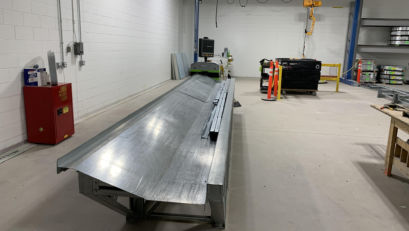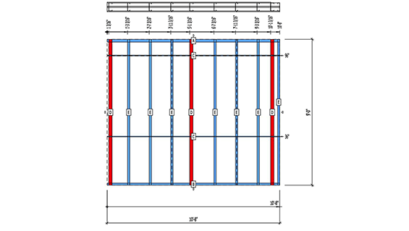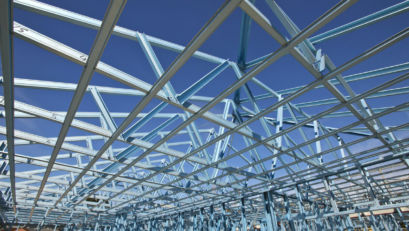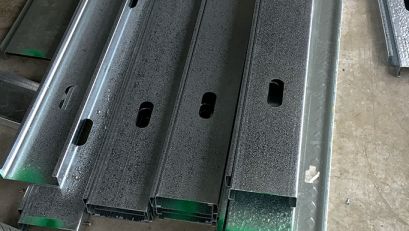Metal Stud Bridging — ClarkDietrich’s Spazzer Bar Requirements
Metal stud bridging, or metal stud bracing, refers to the reinforcement of metal stud wall framing to prevent buckling or twisting.

Why Your Engineer’s Cold-Formed Steel Software Choice Matters
Automated cold-formed steel (CFS) stud fabrication machines or computer numerical controlled (CNC) machines are important pieces of equipment, but the type of third-party software your engineer uses with the machine can make or break a project.
How Small-Scale Roll Form Machines are Changing the Industry
Small-scale roll forming machines are specialized pieces of equipment making a big impact in cold-formed steel and construction — but are they worth it? Keep reading as we explain exactly how they work, plus the pros and cons, so you can make an in…

Introduction to Panel Design & Construction with Cold-Formed Steel
In this blog post, we’ll explore the different types of panel construction that’s taking place in the United States, the panel design process, and the unique aspects of panel construction.

Guide to Non-Structural Metal Framing
Cold-formed steel structural studs and non-structural metal framing are both frequently used building materials, but they have distinct differences.

Tips on Commercial Grow Room Design Plans | Iron Engineering
Cannabis growers, farmers and agriculturalists (namely anyone in the agriculture industry) often share a similar hard-working, “can-do” mentality.
![Working With Cold-Formed Steel Framing [Plus Submittal Tips to Save Time & Money]](https://iron-eng.com/wp-content/uploads/2017/05/IMG_4037-1-409x231.jpg)
Working With Cold-Formed Steel Framing [Plus Submittal Tips to Save Time & Money]
Cold-formed steel framing has become a popular choice in construction projects, with contractors now more often choosing cold-formed steel over traditional wood framing.

Identifying Cold-Formed Steel Material Thicknesses in the Field
When performing inspections of cold-formed steel framing, one of the most obvious aspects to check is the material thickness (mils or gauge).